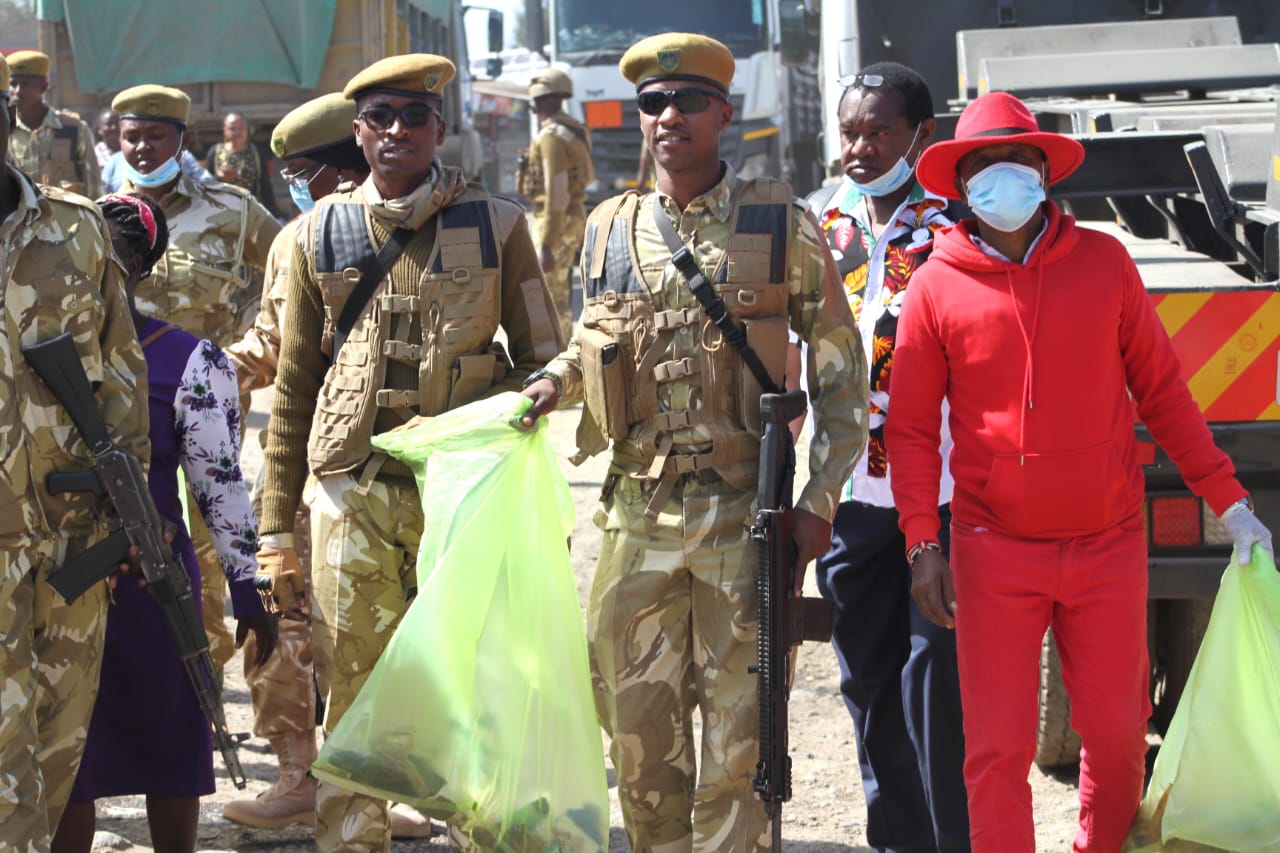 Tsavo East, West and Chyullu Ragers mark the World Rangers Day celebrations held at Mtito Andei. Photo Andrew Mbuva
Tsavo East, West and Chyullu Ragers mark the World Rangers Day celebrations held at Mtito Andei. Photo Andrew Mbuva
By Andrew Mbuva
The Kenya Wildlife Service (KWS) has sounded the alarm over increasing fire outbreaks in Tsavo East, Tsavo West, and Chyulu Hills National Parks, placing the blame squarely on motorists and highway contractors operating along the busy Nairobi-Mombasa Highway.
Speaking during World Rangers Day celebrations held at Mtito Andei, the area Parks Warden, Mr. Jillo Arero, attributed the fires to careless behavior by drivers who discard cigarette butts without properly extinguishing them — a dangerous act, especially during the ongoing dry season.
“Some motorists smoke and throw lit cigarette stubs out of their car windows, causing grass along the road to catch fire. This has become a serious threat to wildlife and biodiversity in our parks,” Jillo said.
The warden also accused contractors working on the Nairobi-Mombasa Highway of playing a significant role in the frequent fires.
“We’ve observed that some of the fire incidents originate from areas where contractors are working. Whether it’s negligence or improper handling of machinery, they must be held accountable,” he emphasized.
In response, KWS has rolled out a number of strategies to mitigate the fires. Among them is the construction of firebreaks along the highway to prevent flames from spreading into the parks.
Additionally, Jillo noted that KWS is working closely with the County Commissioner and local security teams to engage the contractors.
“We’ve held meetings with them, and issued warnings. Should any fire outbreak be linked to their operations, they will be held responsible,” he said.
Support from conservation partners has also been instrumental. “We’re grateful to Davis & Shirtliff for their ongoing support towards our conservation efforts,” Jillo added.
He urged all road users to be more responsible and sensitive to the fragile ecosystem around the national parks, warning that continued negligence could undo decades of conservation work.